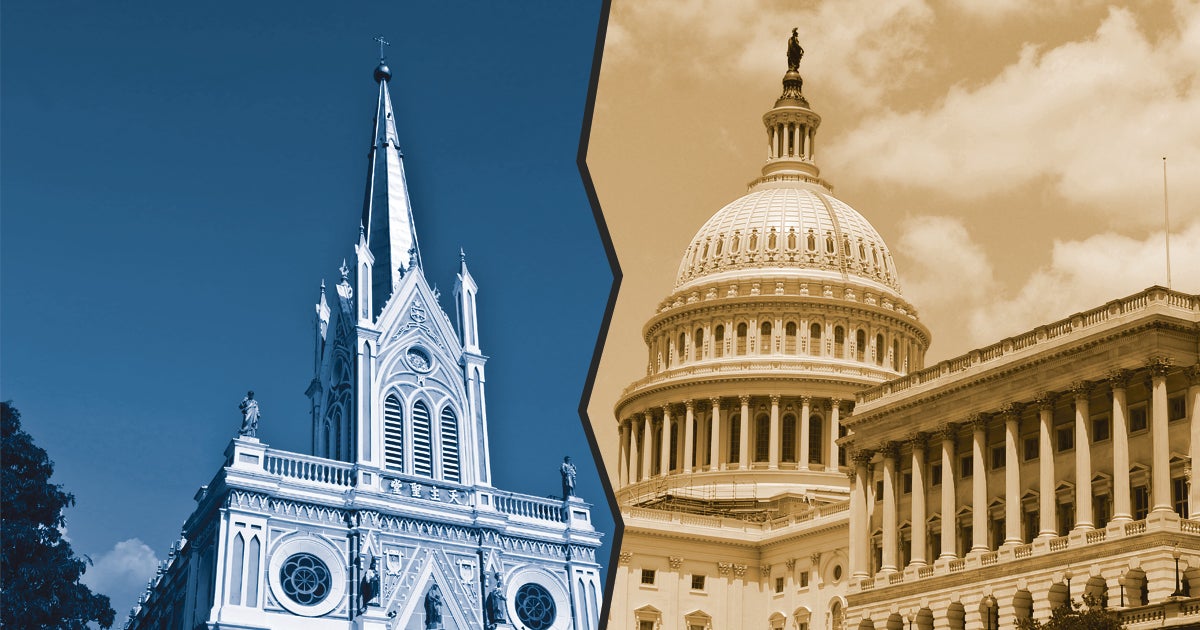
by Jorge Gomez, Senior Writer • 8 min read
In just a matter of weeks, the outbreak of the coronavirus has caused dramatic change to the world around us.
Amidst the uncertainty and anxiety that’s arisen because of a rapidly spreading disease, our natural human instinct may be to withdraw to ourselves, as we see millions of people across our country who are responding by hoarding or looking inward.
And while we each practice the protective measures of “social distancing” for the foreseeable future, we shouldn’t let that term or this situation distort our sense of compassion to extend help to our family, friends, neighbors and our local communities.
We need only to look at our common history as a nation to find example after example of Americans overcoming some of our toughest battles and crises, not by fear or panic, but through unity, empathy and sacrifice.
What’s really been encouraging is witnessing our First Liberty family coming together to support people of faith all across the country. Daily, we’re hearing and learning about all kinds of unique and creative ways people are uniting to serve their community through outreach by their local churches and religious institutions.
For us here at First Liberty, difficult circumstances like these remind us why we fight for religious freedom. They sharpen our focus on our mission and compel us to continue supporting our churches, houses of worship and our religious institutions.
After all, in times of crisis when some prefer to look inward, it’s churches and faith-based organizations who reach out and serve others, bringing light and hope to those in need.
Has your church or house of worship been affected by COVID-19 government restrictions?
Contact First Liberty immediately for legal assistance or if you have questions about your rights.
Right now, pastors, religious leaders and houses of worship are under a lot of pressure. And it’s not just because people are seeking material relief and aid (food, clothing, medical supplies, etc.) that churches and local congregations commonly provide, but also because there is also increased demand from people seeking spiritual answers and comfort.
This is one of the reasons why First Liberty fights for religious freedom. Without religious liberty, there would essentially be no faith-based institutions, houses of worship and people of faith who selflessly serve and contribute essential services to our communities.
As an example, let’s recall the incredible relief effort mounted by religious groups just a few years ago when Hurricane Harvey pummeled parts of Texas and Louisiana for days with record-breaking flooding. On its heels came Hurricane Irma, devastating areas of Florida with severe winds and more flooding.
In the aftermath of these disasters, local churches and houses of worship opened their doors to collectively provide shelter for thousands of affected people who were left homeless overnight.
At that time, First Liberty stepped in almost immediately in to ensure the federal government wouldn’t withhold disaster relief funds from churches and religious organizations who needed it to continue their community rebuilding and assistance efforts. It was a tremendous victory for religious freedom—and of course for thousands of displaced Americans— when the federal government responded positively and changed its policies to provide aid for faith-based groups.
But beyond this specific example, research shows the bigger impact of religious institutions and houses of worship to our society:
Churches, houses of worship and religious nonprofits play a unique and vital role in our country. Protecting their religious liberty is essential, especially in times of crisis when religious groups most urgently need the freedom to serve consistently with their faith.
In the face of a newly emerging and unseen enemy like the coronavirus, government and health officials have swiftly taken action by restricting public gatherings, including how many people can be physically present in churches and other religious institutions.
Understandably, people of faith and religious leaders across the country are nervous about ceding too much control of their liberties, or those of their church, to the state.
Many are asking: Is it a violation of our constitutional rights when the government limits the size of religious gatherings? Or, in looking ahead down the road, will the government seize this opportunity to make some of these current restrictions permanent?
While there is a degree of limitation on our First Amendment’s right of “free exercise of religion” and the “right of the people to peaceably assemble,” there is a viable reason for people of faith to cooperate and work with the government for now.
But here’s the caveat: we must ensure that these current concessions amid the COVID-19 crisis don’t become the “new normal.” In other words, these restrictions must be temporary.
Temporary action to reduce the spread of a global pandemic is almost certainly a compelling reason for the state to limit gatherings in the short-term, so long as the government is not treating religious institutions unfairly compared with how it treats other similar gatherings.
Truly, the current crisis is an opportunity for state and church to work together to reduce the impact of a global pandemic that is threatening our nation.
As we often say, this is a two-way street.
The cooperation of churches, congregations and people of faith requires a mutual respect on behalf of the state for the rights listed in the Constitution, and that certainly includes a respect for religious liberty in the long-term.
Religious liberty has withstood the test of time throughout our nation’s history, both in times of crisis and in times of peace. This time of crisis should not change our longstanding respect for this fundamental, God-given freedom. America’s churches, religious institutions and people of faith need the liberty to live out their faith, so they can continue caring for their local communities.
Through this spirit of mutual respect and cooperation, we can leave a legacy that stands as example of the good that can happen when church and state choose to work together in what is seen as the darkest of times.